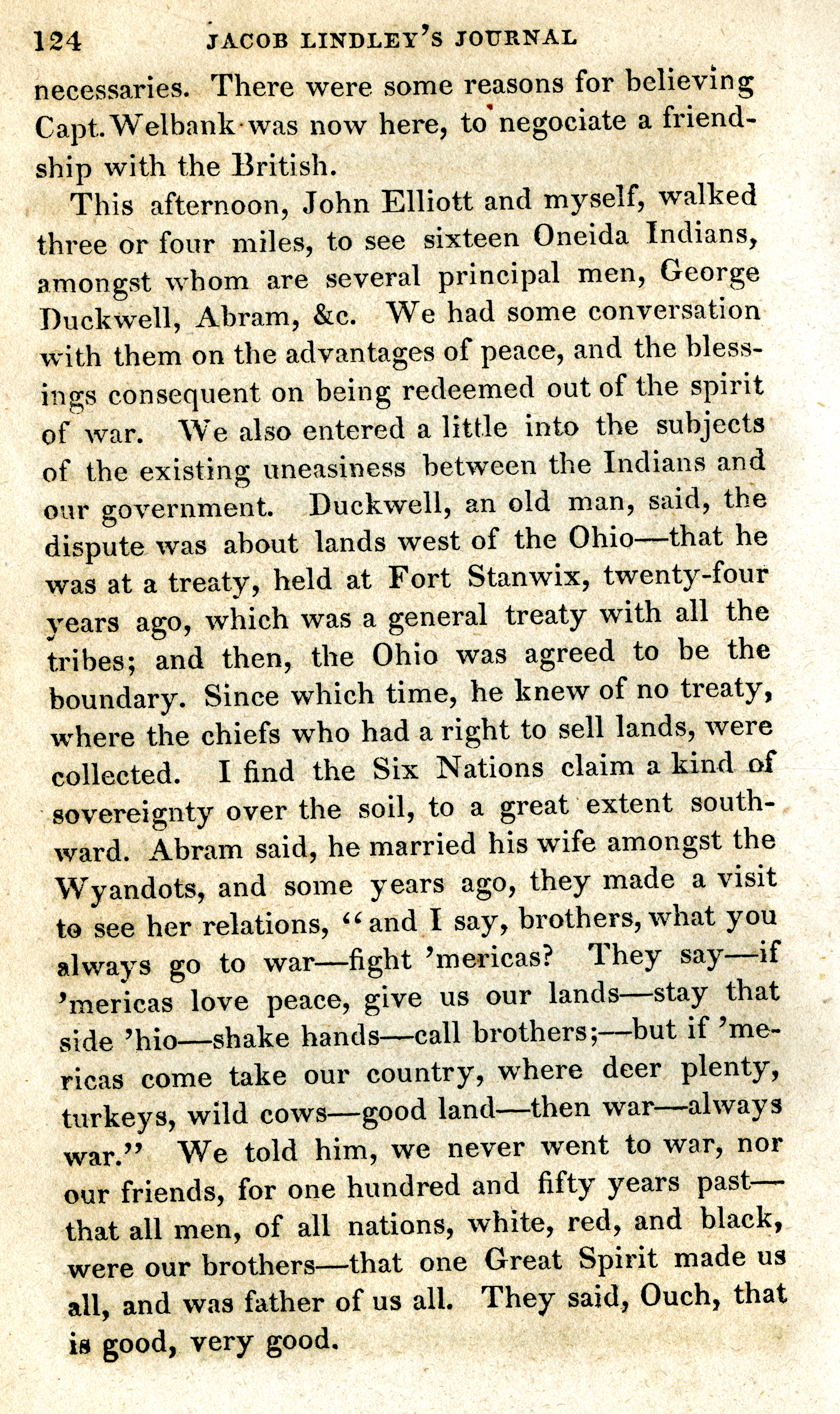necessaries. There were some
reasons for believing
Capt. Welbank was
now here, to negociate a friend-
ship with the British.
This afternoon, John Elliott and myself,
walked
three or four miles, to see sixteen Oneida Indians,
amongst whom are
several principal men, George
Duckwell,
Abram, &c. We had some conversation
with them on the advantages of peace, and the bless-
ings consequent on
being redeemed out of the spirit
of war. We also entered a little into the
subjects
of the existing uneasiness between the Indians and
our
government. Duckwell, an old man, said,
the
dispute was about lands west of the Ohio — that he
was at a treaty, held at Fort Stanwix, twenty-four
years ago, which was a
general treaty with all the
tribes; and then, the Ohio was agreed to be the
boundary. Since which time, he
knew of no treaty,
where the chiefs who had a right to sell lands,
were
collected. I find the Six Nations claim a kind of
sovereignty over
the soil, to a great extent south-
ward. Abram
said, he married his wife amongst the
Wyandots, and some years ago, they made a
visit
to see her relations, "and I say, brothers, what you
always go to
war — fight 'mericas? They say — if
'mericas love peace, give us our lands —
stay that
side 'hio — shake hands — call brothers; — but if ‘me-
ricas
come take our country, where deer plenty,
turkeys, wild cows — good land —
then war — always
war." We told him, we never went to war, nor
our
friends, for one hundred and fifty years past —
that all men, of all
nations, white, red, and black,
were our brothers — that one Great Spirit
made us
all, and was father of us all. They said, Ouch, that
is good,
very good.

